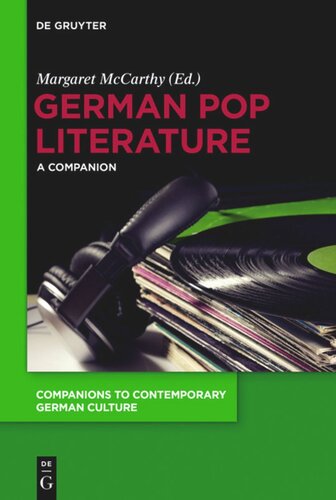

Most ebook files are in PDF format, so you can easily read them using various software such as Foxit Reader or directly on the Google Chrome browser.
Some ebook files are released by publishers in other formats such as .awz, .mobi, .epub, .fb2, etc. You may need to install specific software to read these formats on mobile/PC, such as Calibre.
Please read the tutorial at this link: https://ebookbell.com/faq
We offer FREE conversion to the popular formats you request; however, this may take some time. Therefore, right after payment, please email us, and we will try to provide the service as quickly as possible.
For some exceptional file formats or broken links (if any), please refrain from opening any disputes. Instead, email us first, and we will try to assist within a maximum of 6 hours.
EbookBell Team

5.0
108 reviewsPop literature of the 1990s enjoyed bestselling success, as well as an extensive and sometimes bluntly derogatory reception in the press. Since then, less censorious scholarship on pop has emerged to challenge its flash-in-the-pan status by situating the genre within a longer history of aesthetic practices. This volume draws on recent work and its attempts to define the genre, locate historical antecedents and assess pop’s ability to challenge the status quo. Significantly, it questions the ‘official story’ of pop literature by looking beyond Ralf Dieter Brinkmann’s works as origin to those of Jürgen Ploog, Jörg Fauser and Hadayatullah Hübsch. It also remedies the lack of attention to questions of gender in previous pop lit scholarship and demonstrates how the genre has evolved in the new millennium via expanded thematic concerns and new aesthetic approaches. Essays in the volume examine the writing of well-known, established pop authors – such as Christian Kracht, Andreas Neumeister, Joachim Lottman, Benjamin Lebert, Florian Illies, Feridun Zaimoğlu and Sven Regener – as well as more recent works by Jana Hensel, Charlotte Roche, Kerstin Grether, Helene Hegemann and songwriter/poet PeterLicht.